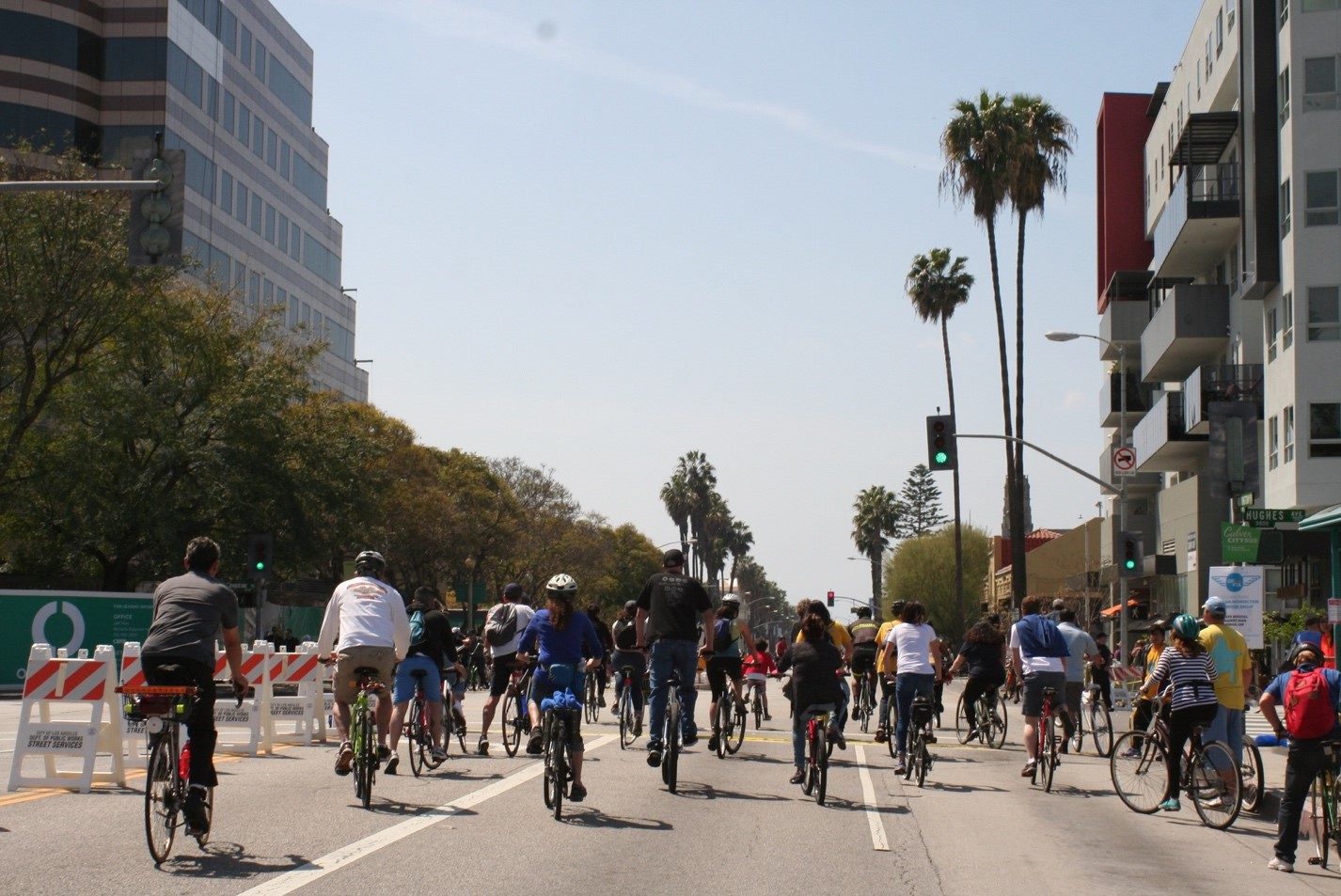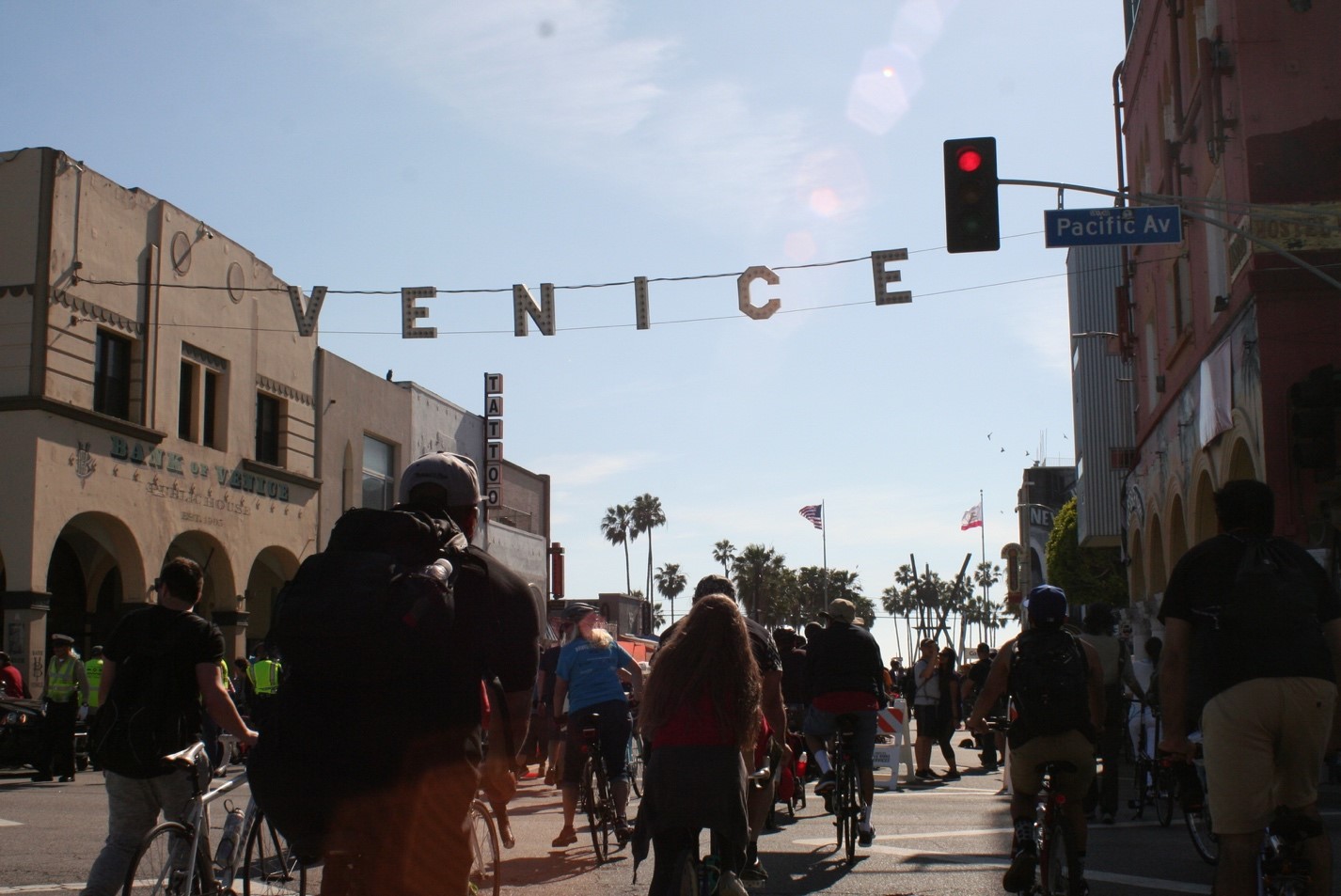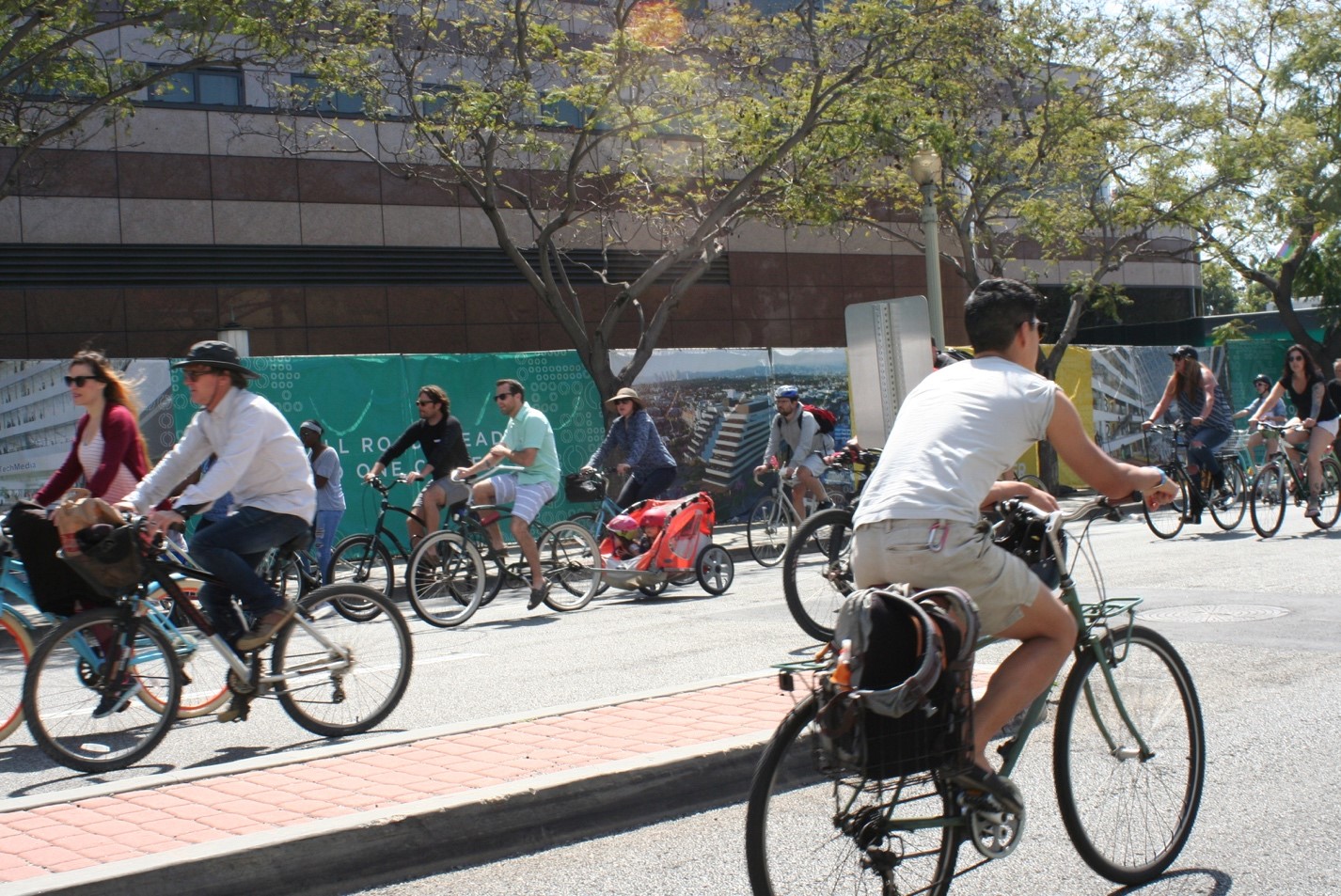News | How is Diversity Changing the Dialogue around Transportation?
Stop the VideoNews

PSR METRANS UTC
How is Diversity Changing the Dialogue around Transportation?
Saturday, April 22, 2017
by By Arpita Sharma, USC MPP/MPL 2017
In my previous column, I interviewed Jessica Meany, a woman who is working to change the transportation field in Los Angeles by making transit accessible to people of all incomes, ages, and cultures.

Cyclists ride along the main streets during CicLAvia, Photo by Arpita Sharma
This week, I explore how diversity might be changing the way we think about cycling. To most of us, diversity represents the inclusion of a variety of people from different cultural or racial backgrounds, but cycling advocacy has historically been predominantly male and white. To confront this lack of representation of women and people of color, organizations like the Los Angeles County Bicycle Coalition and CicLAvia are vocally advocating for more inclusive policies and cycling experiences that are accessible to riders of all ages and backgrounds.
As many of you in the transportation world may know, CicLAvia: Culver City Meets Venice took place on Sunday, March 26, 2017, drawing large crowds of people who rode their bikes along a six-mile route to the ocean, beginning in Culver City and ending in Venice, California.

Riders arrive at Venice Beach, Photo by Arpita Sharma.
The event—which temporarily closes streets to car traffic and opens them to pedestrians, bikers, and Angelinos on other forms of non-motorized travel—is organized by CicLAvia, a nonprofit organization that engages with people in an effort to transform the relationship between streets, the public, and their communities. The organization’s work is inspired by the weekly event, Ciclovía, when certain main streets are blocked off to cars for runners, skaters, and bicyclists in the City of Bogotá, Colombia.
Ciclovía was started in late 1974 by organizer Jaime Ortiz Mariño and other cycling aficionados. In 1976, Mayor Prieto Ocampo signed multiple decrees making Ciclovia an official program promoted by the City government and supported by the city transportation department.
Ciclovía is now internationally renowned and CicLAvia, the nonprofit, is helping to spread the concept in the United States.
I had the opportunity to cycle and walk along the six-mile stretch on this year, watching people of all ages ride their bikes and experience the roads of Los Angeles in ways that were unimaginable just a few short years ago. Their experience and excitement spoke bounds about the need for alternative forms of transportation within the City.

Mia Becker, Photo by Arpita Sharma
Mia Becker, a USC Annenberg Alum (Class of 2013) who lives in Hollywood, participated in the event. Mia has purposely chosen to live car-free in the City of Los Angeles since her arrival here more than five years ago. Having been born and raised in the New York City area strongly shaped her views on public and active transportation. “I am excited to see so many people on the streets; life would be so much better in Los Angeles if there were more bicycles and mass transit and less cars. More Metro, less traffic.”
She is not alone in her views. The residents of LA County passed Metro’s transportation ballot measure M with 71.15% yes vote to increase funding for mass transit. Perhaps events like CicLAvia are helping to increase understanding of what active transportation can be and how it can connect us more as a community.

Cyclists at CicLAvia, Photo by Arpita Sharma
As I biked from Culver City to Venice, I was exposed to more human faces than I’ve ever seen while driving my car throughout the County. These residents proudly showed off their bikes, laughing, and competing with other cyclists as they rode along the stretch. The relaxing breeze and the joyous nature of the day left a positive image in my mind of what Los Angeles may become in the future.
Arpita Sharma
Arpita Sharma is a dual Master of Public Policy and Master of Planning Candidate at the USC Price School. She is interested in issues of health inequities, sustainable land use development and active transportation. She expects to complete her degrees in May 2017. She can be reached at arpitasharma.net or at [email protected].
News Archive
- December (1)
- November (6)
- October (4)
- September (2)
- August (3)
- July (4)
- June (3)
- May (7)
- April (8)
- March (11)
- February (8)
- January (7)
- December (7)
- November (8)
- October (11)
- September (11)
- August (4)
- July (10)
- June (9)
- May (2)
- April (12)
- March (8)
- February (7)
- January (11)
- December (11)
- November (5)
- October (16)
- September (7)
- August (5)
- July (13)
- June (5)
- May (5)
- April (7)
- March (5)
- February (3)
- January (4)
- December (4)
- November (5)
- October (5)
- September (4)
- August (4)
- July (6)
- June (8)
- May (4)
- April (6)
- March (6)
- February (7)
- January (7)
- December (8)
- November (8)
- October (8)
- September (15)
- August (5)
- July (6)
- June (7)
- May (5)
- April (8)
- March (7)
- February (10)
- January (12)















